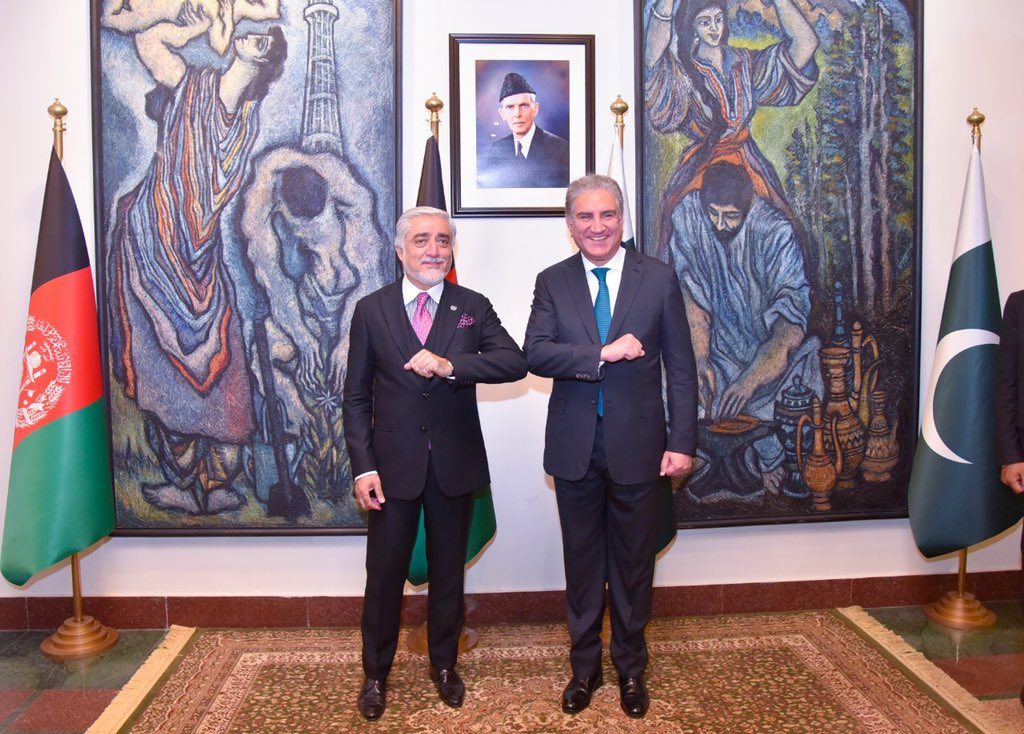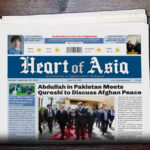Abdullah Abdullah, the chairman of the High Council for National Reconciliation, traveled from Kabul to Islamabad on Monday morning for a three-day official visit that will include meeting Prime Minister Imran Khan, as well as the president and other Pakistani officials, Abdullah’s office confirmed.
Abdullah on Monday morning met with Shah Mahmoud Qureshi, Pakistan’s foreign minister.
Qureshi welcomed Abdullah to Pakistan and expressed hope that his visit “will open a new chapter in bilateral ties, further strengthen relations” and “forge a common understanding” on the Afghan peace process, said Pakistan’s foreign ministry in a tweet.
Reaffirming Pakistan’s support for the Afghan peace process, Qureshi said Pakistan has “always maintained there is no military solution to the Afghan conflict and encouraged all parties to reach a political solution through an Afghan-led and Afghan-owned process,” it said.

While travelling, Abdullah said: “The visit will provide a unique opportunity for the two sides to exchange views on Afghanistan peace talks in Doha and bilateral relations,” and added that he hopes this visit will open a new chapter of “mutual cooperation” at all levels.
Mohammad Umer Daudzai, President Ghani’s Special Envoy for Pakistan, is accompanying Abdullah on the trip and said he believes the visit will yield results as the situation has changed in recent years.
Daudzai said “Pakistan is showing that they are serious about cooperation with the Afghan peace process.”
Abdullah and his delegation will meet Prime Minister Imran Khan on Tuesday, Daudzai said.
Previously, Pakistan’s Prime Minister Imran Khan in an op-ed published in the Washington Post said that peace is within reach in Afghanistan, but a hasty withdrawal of foreign forces will be unwise.
“We have arrived at a rare moment of hope for Afghanistan and for our region. On Sept. 12, delegations from the Afghan government and the Taliban finally sat down in Doha, Qatar, to begin negotiations toward a political settlement that would bring the war in Afghanistan to an end,” read the op-ed.
“We also learned that peace and political stability in Afghanistan could not be imposed from the outside through the use of force. Only an Afghan-owned and Afghan-led reconciliation process, which recognizes Afghanistan’s political realities and diversity, could produce a lasting peace,” wrote Imran Khan.
“All those who have invested in the Afghan peace process should resist the temptation for setting unrealistic timelines. A hasty international withdrawal from Afghanistan would be unwise. We should also guard against regional spoilers who are not invested in peace and see instability in Afghanistan as advantageous for their own geopolitical ends,” said Khan.













